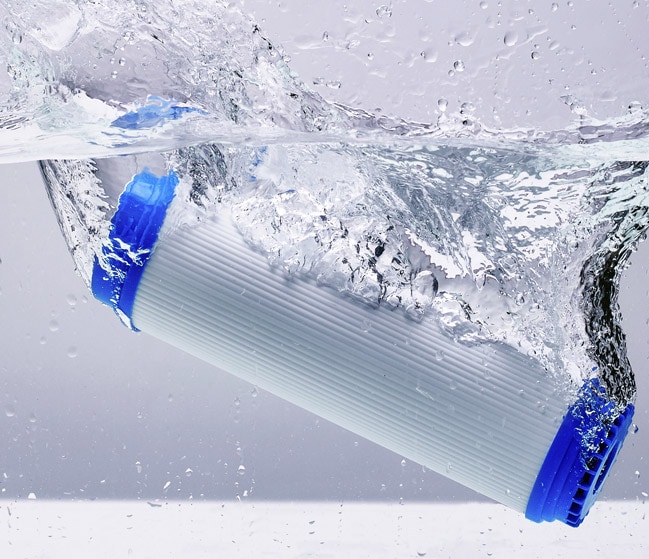 Liquid filtration systems remove harmful or unwanted contaminants from a liquid. A water filtration system does not necessarily have to purify the water for the process to be considered filtration. Any solution that removes some type of undesirable contaminant from water can be considered a type of filtration. Examples of unwanted water contaminants may include bacteria and viruses, sediment, or chlorine, and other chemicals.
Liquid filtration systems remove harmful or unwanted contaminants from a liquid. A water filtration system does not necessarily have to purify the water for the process to be considered filtration. Any solution that removes some type of undesirable contaminant from water can be considered a type of filtration. Examples of unwanted water contaminants may include bacteria and viruses, sediment, or chlorine, and other chemicals.
Types of Filtration Systems
Filtration units come in many shapes and sizes, but most use similar methods to remove contaminants from the water. When selecting an appropriate water filtration system for a commercial or industrial application, first determine the specific contaminants present in the water source. Filtration systems may vary in effectiveness, especially when targeting a particular kind of contaminant, making it essential to choose the right method for a specific problem.
Cartridge Filtration
Cartridge filtration offers the elimination of unwanted contaminants by a removable cartridge.
Cartridge filters are installed in a filter housing and readily replaced as required. A large offering of housing styles and filtration media material and sizes are available to address a broad level of application requirements. Filtration media may include granular activated carbon for chlorine or organic contaminant removal.
Media Backwashing Filtration
Backwashing filtration units use granular media located in a pressure vessel. The unit usually has an automatic control valve to direct water flow through the media bed. These style units usually have a waste stream from the backwash cycle that removes any particulate that accumulates on the media bed surface. Filtration media may include granular activated carbon for chlorine or other organic removals, or green sand for iron removal.
Reverse Osmosis
Reverse osmosis (RO) (or crossflow filtration) forces water through a semi-permeable membrane. The small openings allow water to run through, but also keep out certain types of contaminants based on their molecular weight. The contaminants caught by the membrane get discharged as a waste stream. This type of filter is very effective in removing dissolved metals and harmful chemicals.
Reverse osmosis systems can be slightly more expensive compared to other filtration options, but also tend to offer a higher level of filtration. This enhanced capability makes RO filtration a preferred choice for many laboratory or industrial processes.
Water Filtration Systems From Dayton Water Systems
Filtration systems vary in method and effectiveness based on the specific issues with the water being treated. When choosing a filtration system, it’s important to review what type of contaminants you want to remove and how you need the filtration to work. To learn more about your water filtration options, contact Dayton Water Systems today.
